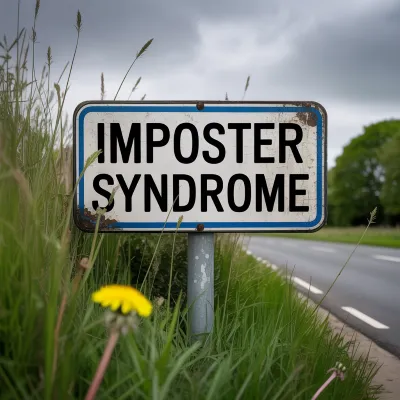
Will coaching help me overcome imposter syndrome?
Yes, coaching can help you overcome imposter syndrome.
But probably not in the way you’ve been led to believe.
It’s not a motivational pep talk.
It’s not a quick confidence fix.
And it’s not about pretending your doubts don’t exist.
What coaching actually does is help you see imposter syndrome for what it really is — and give you the tools to stop it from limiting your future.
First, let’s rethink the label.
The term imposter syndrome suggests a personal flaw — like there’s something wrong with you, or something unchangeable about the way you think.
But you’re not broken.
This isn’t an illness.
And it’s not something you’re destined to carry forever.
What we call imposter syndrome is a set of beliefs. Beliefs about:
Your worth
Whether you’re good enough
If you belong in the room
How much you have to prove before you’re allowed to feel capable
These beliefs don’t come from nowhere. They’re often shaped by your environment — especially workplaces and relationships that reward perfection, ignore contributions, and side-line women in midlife.
Even the most successful feel it.
I’ve coached directors, founders, heads of service, and people who appear utterly confident on the outside — and every one of them has wrestled with the quiet fear of “not being enough.”
That voice saying, “One day, they’ll figure me out.” "I can't do this" "I have no idea what I'm doing"
It doesn’t matter how many degrees, awards, or promotions you’ve had.
If the world has taught you to question your value — you will.
So how exactly does coaching help?
Coaching isn’t about “fixing” you — it’s about unlearning the stories that never belonged to you in the first place.
It helps you:
Spot the beliefs that are quietly running the show
Understand where they came from (guess what: not your fault)
Challenge them with evidence from your own life
Practise new ways of thinking, leading, and showing up
It’s not a magic wand. But it is transformational.
The Voice
In my book, I talk about “The Voice That Was Never Yours.” It’s that internal dialogue that tells you you’re not ready, not good enough, or that you need to work harder to deserve your place.
That voice often comes from childhood, early careers, biased workplaces, unbalanced relationships or social messages that trained women to shrink, not shine.
Coaching helps you trace that voice back — and choose something better.
What coaching doesn’t do — and what it does better
Coaching won’t stop doubt from ever showing up again.
But it will stop doubt from driving your decisions.
It helps you:
Say yes to the opportunity even when your inner critic shouts
Set boundaries without guilt
Speak up in the meeting instead of holding back
Apply for the role without second-guessing every word
You can do great things while feeling unsure. But when you stop tying your worth to your doubt, life gets lighter, bolder, and more honest.
So, will coaching help you overcome imposter syndrome?
Yes — because it helps you get to the root of yours.
Not the textbook definition. Not the label.
Your version. Your story. What's real for you.
And once you see it clearly, you can stop waiting to feel ready — and start living the life and career you actually want.
